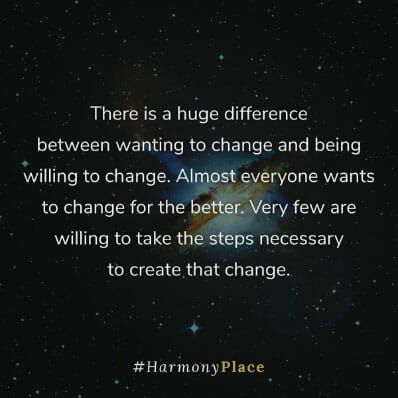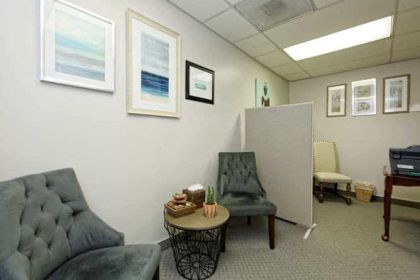Addiction Therapies
Our Addiction Treatment Program Modalities in Los Angeles
Harmony Place provides a structured environment predicated on personal responsibility, individual dignity, and self-esteem in our carefully crafted addiction treatment program. The Harmony Place treatment protocol places an emphasis on exploring substance abuse, the core issues that complicate it, and evidence-based clinical modalities to tackle it. To that end, we offer three individual therapy sessions with a licensed therapist per week. Learn more about our addiction therapy in Los Angeles today!
We have a clinical addiction treatment program curriculum that is purposefully designed to deliver basic addiction education, short-term stabilization, relapse prevention, exploration of recovery obstacles, and examination of the underlying issues that contribute to or exacerbate substance use.

Types of Treatment Programs
The therapeutic alliance is a valued relationship that provides the client with a trusted and objective ally in the recovery process. The bond forged between therapist and client can greatly impact successful outcomes in psychotherapy.
Harmony Addiction Recovery Center’s addiction therapy in Los Angeles provides clients with three individual therapy sessions per week to explore underlying issues that leave them vulnerable to addiction and other mental health issues. Our licensed therapists work closely with each client to determine their individual recovery goals and to manage the treatment from admission to completion.
Individual therapy sessions provide a neutral, supportive and non-judgmental environment for the client to explore sensitive topics. Our experienced therapists employ several therapeutic modalities to examine thoughts, emotions, behaviors, relationships, and perceptions. They seek to identify psychological defenses, challenge cognitive distortions and improve insight into problems.
Therapists at Harmony Place draw from an array of evidence-based treatment modalities in individual and group therapy sessions, including, but not limited to:
- Cognitive Behavioral Therapy (CBT)
- Dialectical Behavior Therapy (DBT)
- Narrative Therapy
- Couples Counseling
- Family Therapy
- Holistic Therapy (including yoga and more)
- Group Counseling
- Individual Counseling
- Motivational Enhancement Therapy (MET)
- Psychodrama Psychotherapy
- Psychodynamic Psychotherapy
- Experiential groups
- Process groups

Call Us 24/7: (855) 652-9048
Mentor Group Sessions
Group therapy is an addiction treatment program modality that benefits the client in a different way than individual therapy. Clients in addiction treatment have many shared experiences, and illuminating those experiences can be positive and validating.
The feedback provided by someone with shared experiences is valuable and often guides the struggling group member through difficult times. The interactions between members of the group may replicate difficult social relationships and provide a safe forum to improve interpersonal skills.
Social skills are further developed when clients observe and model more adaptive behaviors. They gain awareness of the self by understanding their impact on others. This self-awareness can lead to further insight into the origin of one’s own behavior.
Fellowship is a beautiful and essential part of recovery. Many people find that they have never experienced a true connection with other people the way they do when they meet others in treatment.
The Pros
Living with addiction and other mental health disorders is a unique experience that can only truly be understood by others who are living with the same. Additionally, the experience of going to “rehab” or residential treatment is especially unique. People who experience treatment together go through transformational changes, supporting each other and witnessing one another’s growth along the way.
The Gray Area
Sadly, in treatment, many people who come in together will not stay together. Relapse is a high risk during the first few months of recovery. Since relapse is always lurking, it is important to take critical steps toward advocating against it. For this reason, many people argue for and against co-ed treatment.
Few residential treatment centers bunk men and women together. In hospital settings, for example, men and women might be assigned different corridors. Still, they are not in completely separate housing. They will participate in group therapy and activities together all day, and may share meals and be in common areas during down time together.
During their time in these settings, men and women are constantly interacting. Eventually, addicts and alcoholics in recovery will have to intermingle with members of the opposite sex and learn to do so in a healthy way.
Treatment is an opportunity to teach those in recovery how to:
- Have respectful boundaries.
- Utilize healthy tools for communication.
- Create balanced relationships.
The Cons
However, there can be complications, mostly involving hormones and neurotransmitters like dopamine. The first few weeks of recovery are still influenced by the presence of drugs and alcohol in the brain and body. Even after detox, the brain is still fresh off the last time drugs and alcohol were present.
This means that cravings, a need for producing dopamine (pleasure), and trying to balance hormones all create a complication. Without high amounts of supervision and organization, it is easy for co-ed clients in a treatment center to engage in romantic relations. Often referred to as a “rehab romance,” delusional trains of thought, high hormones and an incessant need for feeling pleasure can create a volatile situation between two clients.
The Harmony Format
At Harmony Place, all group activities and therapy are delivered to a co-ed audience, yet clients in our residential program stay in gender-specific housing at night – all on the same property, though. After the residential program, male and female clients are invited to stay in our large transitional living home, where the room accommodations are gender-separated as well.

Family Therapy Programs
Family therapy can have a profound impact on a successful treatment outcome. Psychoeducation at Harmony Place provides family members with insight into addiction and the associated behaviors exhibited by their loved ones.
The primary therapist has an opportunity to observe the interpersonal functioning, maladaptive patterns, and communication patterns among the family members. Where trust was lost during active addiction, the family unit can initiate work to repair ruptures in the relationships. The family system can prepare for the client to re-enter the home following treatment.
The primary therapist will work with the client individually to prepare him or her to work with family members. When appropriate, they will invite the family members to participate in family therapy. Harmony Place also includes a weekly Multi-Family Group in the program curriculum to augment the family system healing process.






